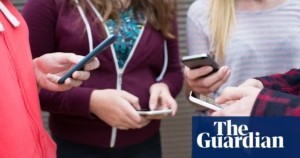Renowned figures like Paul McCartney, Ben Stiller, and Cate Blanchett, along with over 400 celebrities and artists, have come together to send a letter to the Trump administration, urging them not to dismantle existing copyright protections.
Nearing 400 Hollywood celebrities and leading creatives, including Paul McCartney, Cate Blanchett, and Guillermo del Toro, have signed a letter directed at the Trump White House’s Office of Science and Technology Policy. In the letter, they emphatically urge the administration not to weaken copyright protections, a stance particularly contrary to the proposals made by tech giants like OpenAI and Google.
The letter challenges recent suggestions by these tech giants that advocate for a loosening of copyright law to supposedly strengthen America’s convergence in AI development against countries like China.
“We firmly believe that America’s global AI leadership must not come at the expense of our essential creative industries,” the letter states clearly, highlighting the concern that AI development should not compromise the livelihood of artists and creators.
The signatories, a list including Ben Stiller, Mark Ruffalo, Cynthia Erivo, Alfonso Cuaron, Chris Rock, Bette Midler, Ava DuVernay, Aubrey Plaza, Ron Howard, Ayo Edebiri, Joseph Gordon-Levitt, Lily Gladstone, Sam Mendes, Paul Giamatti, Maggie Gyllenhaal, and Taika Waititi, express their stance against tech giants like Google and OpenAI. These giants, despite their immense revenues and resources, are advocating for a special government exemption to freely utilize America’s creative and knowledge industries for AI training without permission or compensation to the rights holders.
“America didn’t become a global cultural powerhouse by accident. Our success stems directly from our fundamental respect for IP and copyright that rewards creative risk-taking by talented and hardworking Americans from every state and territory,” the letter concludes, underlining the importance of upholding copyright laws that have been the bedrock of America’s creative and cultural influence worldwide.
The letter from the Hollywood signatories:
Hello Friends & Strangers. As you may be aware there has recently been a recommendation by OpenAI & Google to the current US Administration that is gaining alarming traction to remove all legal protections & existing guardrails surrounding copyright law protections for the training of Artificial Intelligence. This rewriting of established law in favor of so-called “Fair Use” was in need of an initial response by 11:59 PM ET Saturday, so we have submitted an initial letter with the signatories we had at that time. We are now continuing to accept signatures for an amendment to our initial statement. Please feel free to forward this to anyone you think may be invested in the ethical maintenance of their intellectual property. You can add your name and whatever guilds or unions or description of self you feel appropriate, but please do not edit the letter itself. Thank you so much for kicking this out wide on a Saturday Night!
Hollywood’s Response to the Administration’s Artificial Intelligence Action Plan and necessity that copyright law be upheld.
We, the members of America’s entertainment industry — representing an intersection of cinematographers, directors, producers, actors, writers, studios, production companies, musicians, composers, costume, sound & production designers, editors, gaffers, union and Academy Members, and other industrious, creative content professionals — submit this unified statement in response to the Administration’s request for input on the AI Action Plan.
We firmly believe that America’s global AI leadership must not come at the expense of our essential creative industries. America’s arts and entertainment industry supports over 2.3M American jobs with over $229Bn in wages annually, while providing the foundation for American democratic influence and soft power abroad. But AI companies are asking to undermine this economic and cultural strength by weakening copyright protections for the films, television series, artworks, writing, music, and voices used to train AI models at the core of multi-billion dollar corporate valuations.
Make no mistake: this issue goes well beyond the entertainment industry, as the right to train AI on all copyright-protected content impacts all of America’s knowledge industries. When tech and AI companies demand unfettered access to all data and information, they’re not just threatening movies, books, and music, but the work of all writers, publishers, photographers, scientists, architects, engineers, designers, doctors, software developers and all other professionals who work with computers and generate intellectual property. These professions are the core of how we discover, learn, and share knowledge as a society and as a nation. This issue is not just about AI leadership or about economics and individual rights, but about America’s continued leadership in creating and owning valuable intellectual property in every field.
It is clear that Google (valued at $2Tn) and OpenAI (valued at over $157Bn) are arguing for a special government exemption so they can freely exploit America’s creative and knowledge industries, despite their substantial revenues and available funds. There is no reason to weaken or eliminate the copyright protections that have helped America flourish. Not when AI companies can use our copyrighted material by simply doing what the law requires: negotiating appropriate licenses with copyright holders — just as every other industry does. Access to America’s creative catalog of films, writing, video content, and music is not a matter of national security. They do not require a government-mandated exemption from existing U.S. copyright law.
America didn’t become a global cultural powerhouse by accident. Our success stems directly from our fundamental respect for IP and copyright that rewards creative risk-taking by talented and hardworking Americans from every state and territory. For nearly 250 years, U.S. copyright law has balanced creator’s rights with the needs of the public, creating the world’s most vibrant creative economy. We recommend that the American AI Action Plan uphold existing copyright frameworks to maintain the strength of America’s creative and knowledge industries, as well as American cultural influence abroad.





